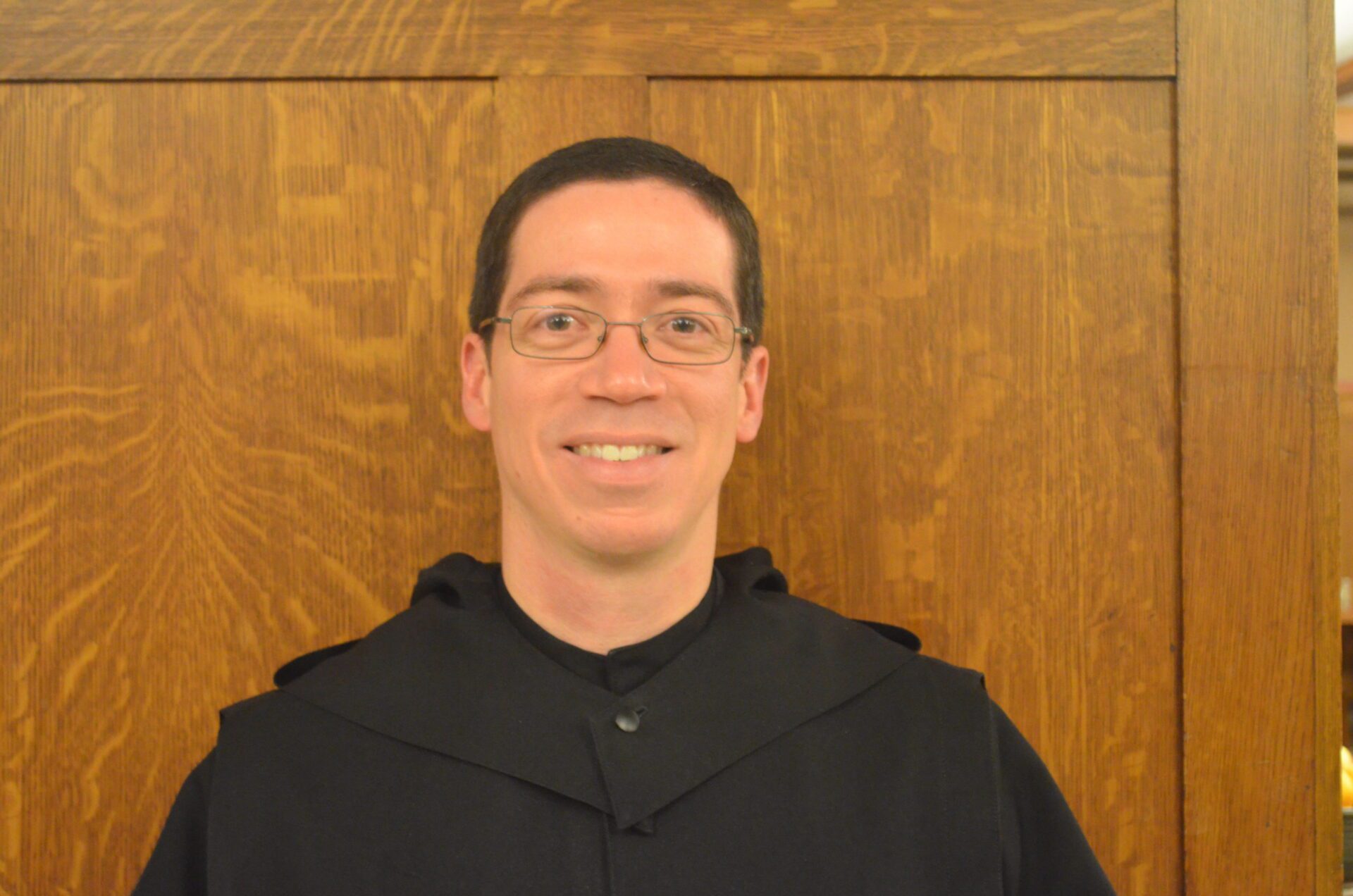Whether you have questions about discernment and vocations or want general information about Belmont Abbey, we invite you to reach out and ask!
Homilies

April 27, 2020
Third Sunday of Easter April 26, 2020

The story of the journey to Emmaus, in today’s Easter gospel, brings with it echoes of life, because how often life itself is described as a journey. And of course, many things happen on the road to Emmaus to which we can relate as human beings, for they are quintessentially human experiences. First, Cleopas and his companion experience real disappointment. This is not just any disappointment, but the deep disappointment when one’s very dreams and plans are cast down. Thus, it is as if they say, “We had hoped that Jesus would be the one to save us, to deliver us from captivity to lesser things!” That Jesus would have brought about the joy and happiness that we had envisioned. Alas, it was not to be as we thought, and now we do not see a good way forward. And surely sometimes human beings share this experience. Plans that seemed good and right and perfect, do not come to pass. Where then is God? Why is God not proceeding with what seems clearly is the best way forward? When human beings begin to face such questions, it is possible for them to descend into a real depression, questioning God’s very nature. The truth that I think we must hold on to in such moments is this: always God is good, and there is nothing that happens that is beyond God’s power and awareness. We must understand that our plans will often not exactly be God’s plans. But, the truth remains, God is the perfection of goodness itself.
In the defense of Cleopas and his companion, it can be easy to forget the truth of God’s nature in the midst of disappointment. God, though, will always reach out, will always call, especially when we forget. Ever does God reach out to save human beings from their futile conduct. What Cleopas and his companion do not realize is that in their disappointment they have partially closed themselves off to what can help them. The women had been to the empty tomb, and angels, no less than angels(!), had delivered a message that Jesus is alive; the situation is not as dire as it seems and there is yet hope for a good future and a good outcome. But Cleopas and his companion will not believe the women. In wrapping themselves up in their disappointment, they have also wrapped themselves up in the certainty and rightness of their own ideas and conclusions, and thus they mistakenly dismiss the testimony of the women, holding it to be less correct than their own thoughts. There is always the danger of this lack of openness, when human beings suffer disappointment. For, the lamp of the body is the eye. But if the eye is bad, then the whole body will be in darkness.
And still God reaches out! Actually, God comes to them directly! This Easter episode actually echoes the reality of the Incarnation as well. The people would not listen to the prophets, in this case the testimony of the women. They refused God’s wisdom from afar. And so, God came as one of them, so that they might not refuse the direct presence of the Beloved Son. Jesus himself, thus, walks with Cleopas and his companion, drawing out from them the poison of their discouragement and ill thoughts by having them share their thoughts with him. And then having drawn out the poison of their thoughts, He fills them instead with a vision and knowledge of goodness and light. And how does Jesus do this? Beginning with Moses and all the prophets, Jesus interpreted to them what referred to him in all the Scriptures. When He spoke to them with the Scriptures and through the Scriptures, their hearts were burning within them. And for us, why should we seek a different way? We share our thoughts, our ill thoughts, with those physicians of souls who are capable of bringing spiritual healing. And then we fill our minds with images of Jesus in the Scriptures. Because, if our eye is sound, and what we see is of God, our whole body will be filled with light.
As for Cleopas and his companion, with their hearts now burning, with their minds now filled with the revelation of all that God had done in and through Jesus, they were now ready to receive the Eucharist. Indeed, they longed to have Jesus with them and sought him. They even asked him to stay with them, without being aware of it. Their soul recognized Jesus before their mind did. When people find themselves approaching the table of the Lord’s Eucharist with indifference, in a token and casual manner, and they would instead wish to reawaken within themselves the longing expressed by Cleopas and his companion – “Lord, stay with us!”, then perhaps today’s gospel gives the suggestion for what they can do more of to stir again their hearts with the love and the burning they had from the beginning. Whatever is true, whatever is honorable, whatever is just, whatever is pure, whatever is lovely, whatever is gracious, if there is any excellence and if there is anything worthy of praise, think about these things. Let us think more of Jesus.
And then finally, at the end of the journey to Emmaus recounted today, when the eyes of Cleopas and his companion are opened, then Jesus vanishes. It is only for a time, as God knows and as God wills. Indeed, Jesus will shortly appear to all of them again in Jerusalem, including Cleopas and his companion. For, God is with us and will be with us, as God wills and not as we will. And yet all that God does is for our good. Cleopas and his companion had expected Christ to save them and deliver them, according to their own plans and thoughts. In fact, they were ransomed and delivered. By the set plan and foreknowledge of God, Christ submitted to the cross and was killed. But God raised him from the dead and gave him glory. And now we are saved with the precious blood of Christ, the spotless unblemished lamb. Thus, it is through him that we have access to God. For, we believe in God through Christ, and our faith and hope reach to God through Christ. And we thus become children of God, brothers and sisters of Christ. Surely, this was a better plan than whatever Cleopas and his companion had envisioned!
Today, as we continue our celebration of Easter, perhaps we are invited to examine our own life’s journey, and to see how God is speaking to us now, just as with the disciples on their journey. In this Eucharist, we pray for the grace to be open to the grace of God and receive it in the full measure that God wills to give it to us. And may our hearts increasingly burn for Christ. Amen.
Fr. Elias Correa-Torres, O.S.B.